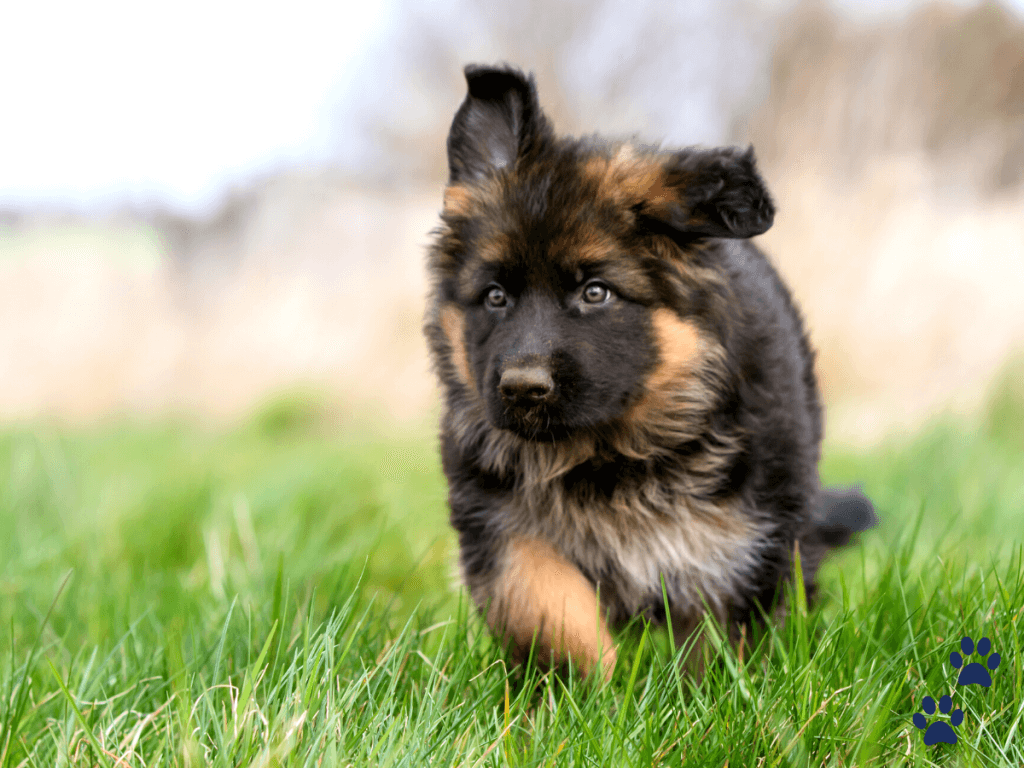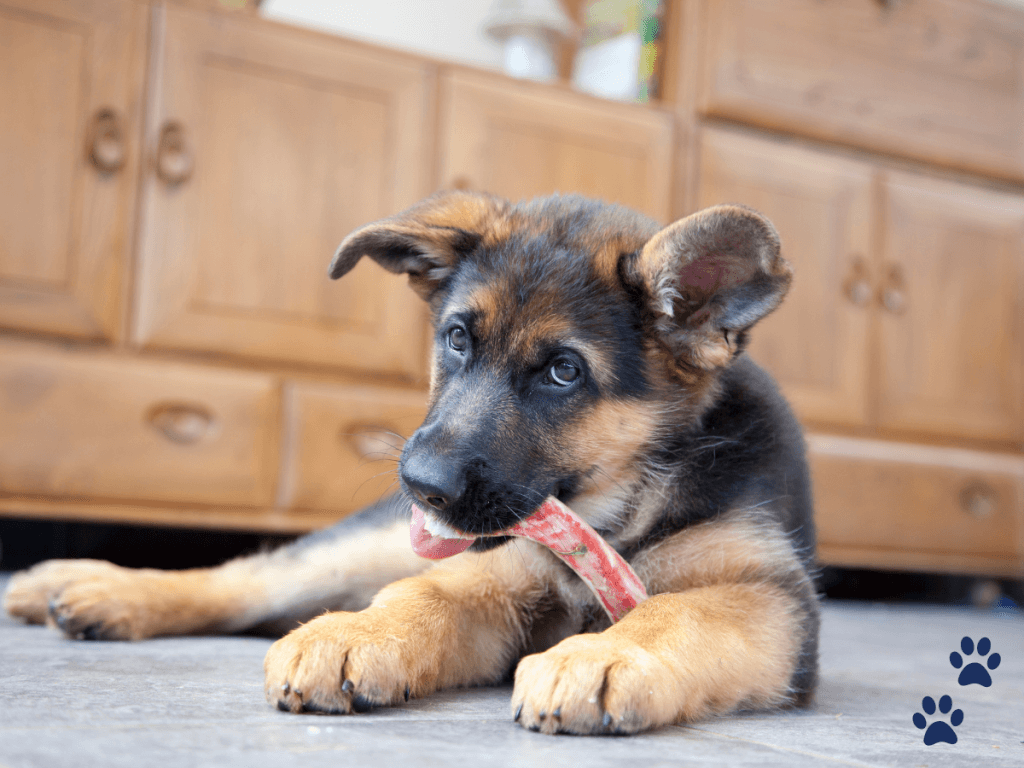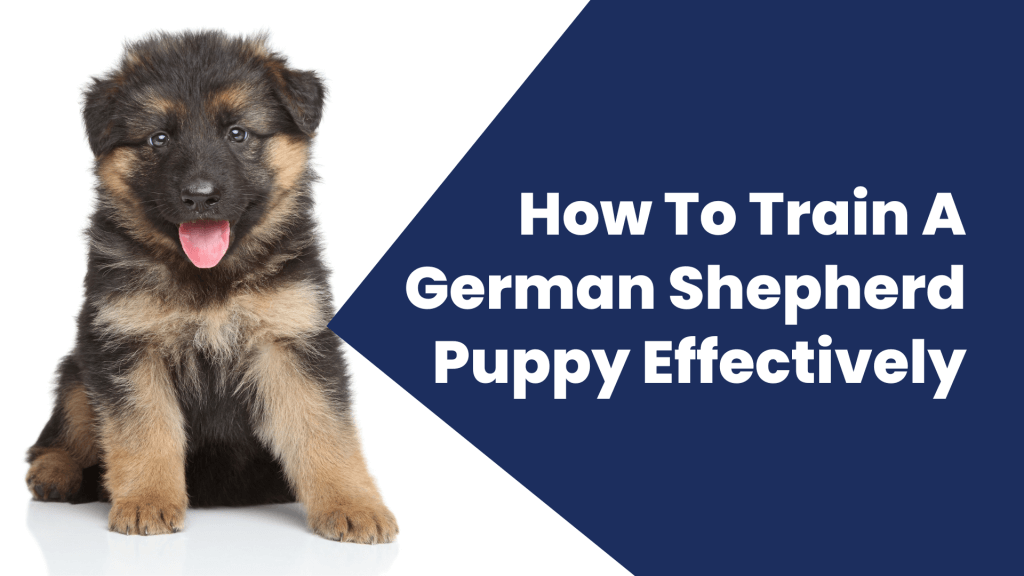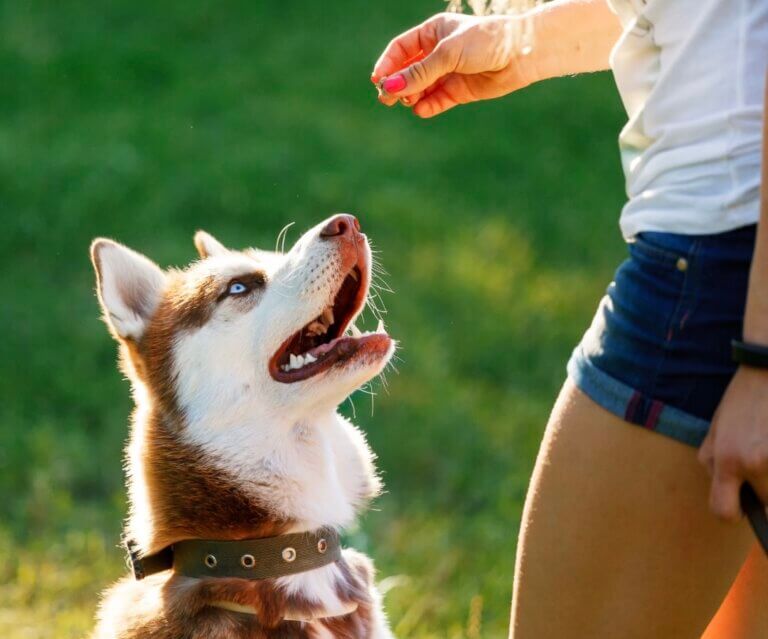Aside from the fact that they are among the most versatile dog breeds…
But you see, raising a German Shepherd puppy isn’t all rainbows and butterflies.
Well, you have to invest time and effort to train them properly, so they will grow up into well-behaved dogs.
Keep reading to find out more!
German Shepherd Puppy Behaviour
You see, these dogs are known for being full of energy.
But hey, since German Shepherds are naturally intelligent, they quickly learn new things.
So, if you’re not careful, they will pick up bad habits just as easily as good ones.
And you must also understand that German shepherd puppies have a short attention span.
There must be rules that they need to follow.
That is why it’s essential to keep training sessions short, so they don’t get bored.

Another thing you should know about German Shepherd puppies because they are very social creatures.
However, if they’re not properly socialised, they can become anxious and aggressive around people and other animals.
But don’t worry, we will give you some tips on doing that later on.
Training Goals Per Timeline
And these goals should be based on your puppy’s age and development.
By the time your German Shepherd is three months old, he should be able to learn some basic obedience commands such as how to sit, stay, come when called, and lie down.
Between two to four months, your training goals should be about House Training, Crate Training and Socialisation.
During your puppy’s fourth to ninth month, you can start teaching them progressing basic commands.
You must understand that during this time, the goal of the puppy training should be about Obedience, Impulse Control, and Shaping Calm Behaviour.
It will help them learn how to follow commands, and you can also support them in socialising with other dogs and people.
This is an important skill for German Shepherds simply because they are energetic.
While Recall Training is about teaching your German Shepherd to come back to you when called.’
You may also consider teaching them protection training if that’s something you’re interested in.
Remember this: At this stage, you MUST still continue working on their obedience, recall, and impulse control training.
Of course, every German Shepherd is different and will learn at his own pace.
A Few Tips for Socialising your Puppy with Other Dogs and People
And this can be done by taking them to a well-run obedience school.
The more exposure they have early on, the better adjusted they will be when they grow up.
This way, your German Shepherd puppy won’t get bored or overwhelmed.
Praise them and give them treats when they do something good.
Just remember to go slowly and expose them to different things one at a time.

Wrapping Up
The takeaways from this blog post are pretty simple…
Second, establish the training goals per timeline.
Lastly, you should be socialising your German Shepherd puppy with other dogs and people.
What’s your biggest takeaway on this topic? Let us know in the comments below!

